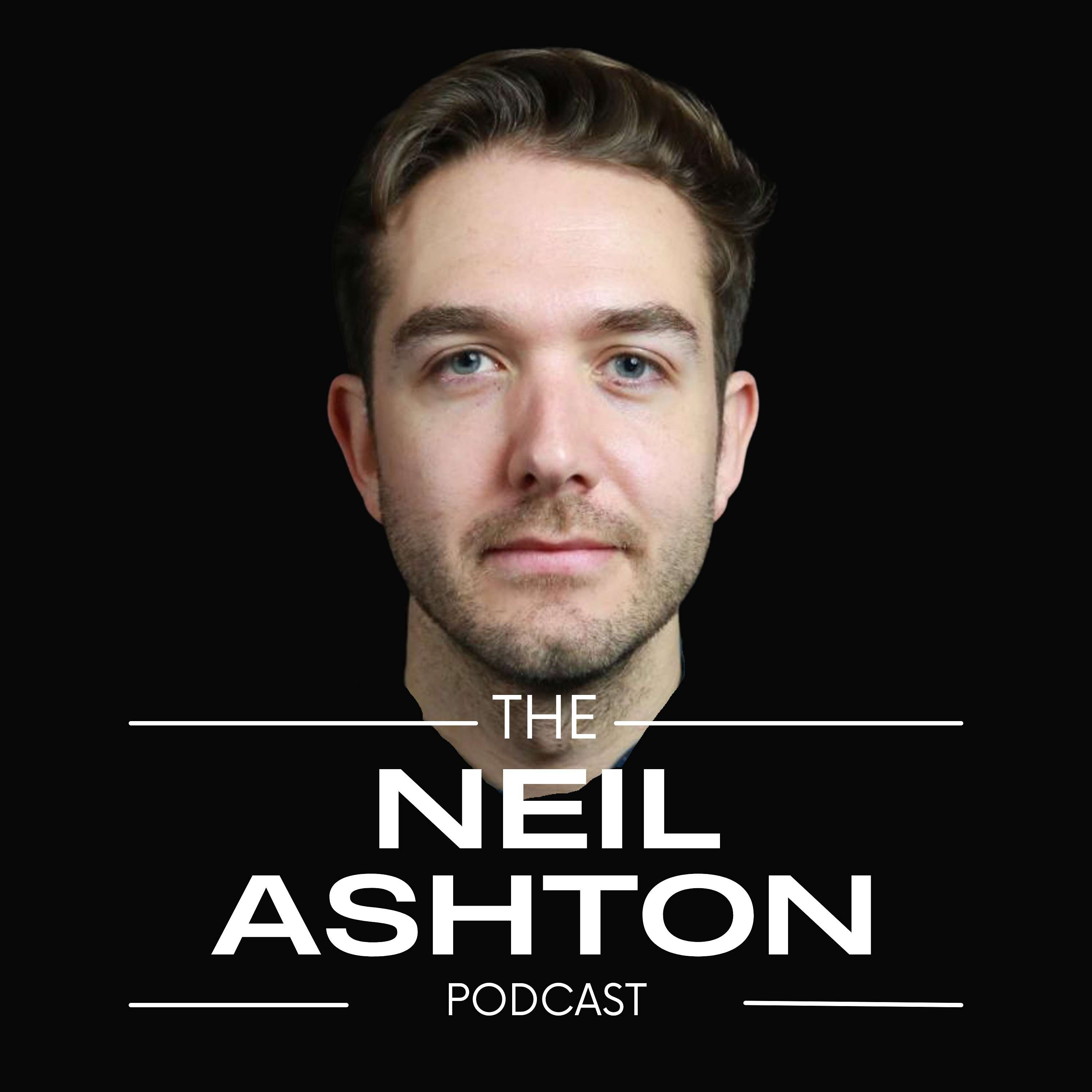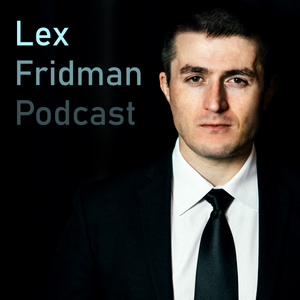
S1, EP11 - Prof. Max Welling - Machine Learning Pioneer & AI4Science Visionary
07/09/24 • 67 min
In this episode, Neil interviews Professor Max Welling, one of the foremost experts in Machine Learning about AI4Science: the use of machine learning and AI to solve challenges in various scientific disciplines. They discuss and debate between data-driven and physics-driven approaches, the potential for foundational models, the importance of open sourcing models and data, the challenges of data sharing in science, and the ethical considerations of releasing powerful models. The conversation covers the role of academia, industry, and startups in driving innovation, with a focus on the field of AI. Professor Welling discusses the advantages and limitations of each sector and shares his experience in academia, big tech companies, and startups. The conversation then shifts to Professor Wellings new company; CuspAI, which focuses on material discovery for carbon capture using metal organic frameworks and machine learning. Prof. Welling provides insights into the potential applications of this technology and the importance of addressing sustainability challenges. The conversation concludes with a discussion on career advice and the future of AI for science.
Links
CuspAI : https://www.cusp.ai
University website: https://staff.fnwi.uva.nl/m.welling/
Google scholar: https://scholar.google.com/citations?user=8200InoAAAAJ&hl=en
AI4Science NeurIPS 2023 workshop: https://neurips.cc/virtual/2023/workshop/66548
AI4Science NeurIPS 2022 workshop: https://nips.cc/virtual/2022/workshop/50019
Aurora paper: https://arxiv.org/abs/2405.13063
Chapters
00:00 Introduction to the Neil Ashton Podcast
00:39 Guest Introduction: Professor Max Welling
11:12 Data-Driven vs. Physics-Driven Approaches in Machine Learning for Science
17:00 Foundational models for science
23:08 Discussion around Open-Sourcing Models and Data
29:26 Ethical Considerations in Releasing Powerful Models for Public Use
33:14 Collaboration and Shared Resources in Addressing Global Challenges
34:07 The Role of Academia, Industry, and Startups
43:27 Material Discovery for Carbon Capture
52:02 Career Advice for Early-stage Researchers
01:01:07 The Future of AI for Science and Sustainability
Keywords
AI for science, machine learning, data-driven approaches, physics-driven approaches, foundational models, open sourcing, data sharing, ethical considerations, blockchain technology, academia, industry, startups, AI, material discovery, carbon capture, metal organic frameworks, machine learning, sustainability, career advice, future of AI for science
In this episode, Neil interviews Professor Max Welling, one of the foremost experts in Machine Learning about AI4Science: the use of machine learning and AI to solve challenges in various scientific disciplines. They discuss and debate between data-driven and physics-driven approaches, the potential for foundational models, the importance of open sourcing models and data, the challenges of data sharing in science, and the ethical considerations of releasing powerful models. The conversation covers the role of academia, industry, and startups in driving innovation, with a focus on the field of AI. Professor Welling discusses the advantages and limitations of each sector and shares his experience in academia, big tech companies, and startups. The conversation then shifts to Professor Wellings new company; CuspAI, which focuses on material discovery for carbon capture using metal organic frameworks and machine learning. Prof. Welling provides insights into the potential applications of this technology and the importance of addressing sustainability challenges. The conversation concludes with a discussion on career advice and the future of AI for science.
Links
CuspAI : https://www.cusp.ai
University website: https://staff.fnwi.uva.nl/m.welling/
Google scholar: https://scholar.google.com/citations?user=8200InoAAAAJ&hl=en
AI4Science NeurIPS 2023 workshop: https://neurips.cc/virtual/2023/workshop/66548
AI4Science NeurIPS 2022 workshop: https://nips.cc/virtual/2022/workshop/50019
Aurora paper: https://arxiv.org/abs/2405.13063
Chapters
00:00 Introduction to the Neil Ashton Podcast
00:39 Guest Introduction: Professor Max Welling
11:12 Data-Driven vs. Physics-Driven Approaches in Machine Learning for Science
17:00 Foundational models for science
23:08 Discussion around Open-Sourcing Models and Data
29:26 Ethical Considerations in Releasing Powerful Models for Public Use
33:14 Collaboration and Shared Resources in Addressing Global Challenges
34:07 The Role of Academia, Industry, and Startups
43:27 Material Discovery for Carbon Capture
52:02 Career Advice for Early-stage Researchers
01:01:07 The Future of AI for Science and Sustainability
Keywords
AI for science, machine learning, data-driven approaches, physics-driven approaches, foundational models, open sourcing, data sharing, ethical considerations, blockchain technology, academia, industry, startups, AI, material discovery, carbon capture, metal organic frameworks, machine learning, sustainability, career advice, future of AI for science
Previous Episode

S1, EP10 - AI4Science - Personal Thoughts and Perspectives
This episode sets the scene for upcoming discussions on AI4Science with world renowned experts on machine learning. The focus is on using machine learning to solve scientific problems, such as computational fluid dynamics, weather modeling, material design, and drug discovery. The episode introduces the concept of machine learning and its potential to accelerate simulations and predictions. The episode also discusses the differences between machine learning for scientific problems and large language models, and the ongoing debate on incorporating physics into machine learning models.
Chapters
00:30 Introduction: AI for Science and Machine Learning
02:29 The Importance of Computational Fluid Dynamics
04:53 The Limitations of Physical Testing and Simulation
05:53 Accelerating Simulations and Predictions with Machine Learning
09:51 Data-Driven vs Physics-Informed Approaches in Machine Learning
13:10 The Future of Machine Learning in Science: Foundational Models
Next Episode

S1, EP12 - Prof Karthik Duraisamy - Scientific Foundational Models
Prof. Karthik Duraisamy is a Professor at the University of Michigan, the Director of the Michigan Institute for Computational Discovery and Engineering (MICDE) and the founder of the startup Geminus.AI. In this episode, we discusses AI4Science, with a particular focus on fluid dynamics and computational fluid dynamics. Prof. Duraisamy talks about the progress and challenges of using machine learning in turbulence modeling and the potential of surrogate models (both data-driven and physics-informed neural networks). He also explores the concept of foundational models for science and the role of data and physics in AI applications. The discussion highlights the importance of using machine learning as a tool in the scientific process and the potential benefits of large language models in scientific discovery. We also discuss the need for collaboration between academia, tech companies, and startups to achieve the vision of a new platform for scientific discovery. Prof. Duraisamy predicts that in the next few years, there may be major advancements in foundation models for science however he cautions against unrealistic expectations and emphasizes the importance of understanding the limitations of AI.
Links:
Summer school tutorials https://github.com/scifm/summer-school-2024 (scroll down for links to specific tutorials)
SciFM24 recordings : https://micde.umich.edu/news-events/annual-symposia/2024-symposium/
SciFM24 Summary : https://drive.google.com/file/d/1eC2HJdpfyZZ42RaT9KakcuACEo4nqAsJ/view
Trillion parameter consortium : https://tpc.dev
Turbulence Modelling in the age of data: https://www.annualreviews.org/content/journals/10.1146/annurev-fluid-010518-040547
LinkedIn: https://www.linkedin.com/showcase/micde/
Chapters
00:00 Introduction
09:41 Turbulence Modeling and Machine Learning
21:30 Surrogate Models and Physics-Informed Neural Networks
28:42 Foundational Models for Science
35:23 The Power of Large Language Models
47:43 Tools for Foundation Models
48:39 Interfacing with Specialized Agents
53:31 The Importance of Collaboration
58:57 The Role of Agents and Solvers
01:08:26 Balancing AI and Existing Expertise
01:21:28 Predicting the Future of AI in Fluid Dynamics
01:23:18 Closing Gaps in Turbulence Modeling
01:25:42 Achieving Productivity Benefits with Existing Tools
Takeaways
-Machine learning is a valuable tool in the development of turbulence modeling and other scientific applications.
-Data-driven modeling can provide additional insights and improve the accuracy of scientific models.
-Physics-informed neural networks have potential in solving inverse problems but may not be as effective in solving complex PDEs.
-Foundational models for science can benefit from a combination of data-driven approaches and physics-based knowledge.
-Large language models have the potential to assist in scientific discovery and provide valuable insights in various scientific domains. Having a strong foundation in the domain of study is crucial before applying AI techniques.
-Collaboration between academia, tech companies, and startups is necessary to achieve the vision of a new platform for scientific discovery.
-Understanding the limitations of AI and managing expectations is important.
-AI can be a valuable tool for productivity gains and scientific assistance, but it will not replace human expertise.
Keywords
#computationalfluiddynamics , #ailearning #largelanguagemodels , #cfd , #supercomputing , #fluiddynamics
If you like this episode you’ll love
Episode Comments
Generate a badge
Get a badge for your website that links back to this episode
<a href="https://goodpods.com/podcasts/the-neil-ashton-podcast-467936/s1-ep11-prof-max-welling-machine-learning-pioneer-and-ai4science-visio-63059093"> <img src="https://storage.googleapis.com/goodpods-images-bucket/badges/generic-badge-1.svg" alt="listen to s1, ep11 - prof. max welling - machine learning pioneer & ai4science visionary on goodpods" style="width: 225px" /> </a>
Copy




